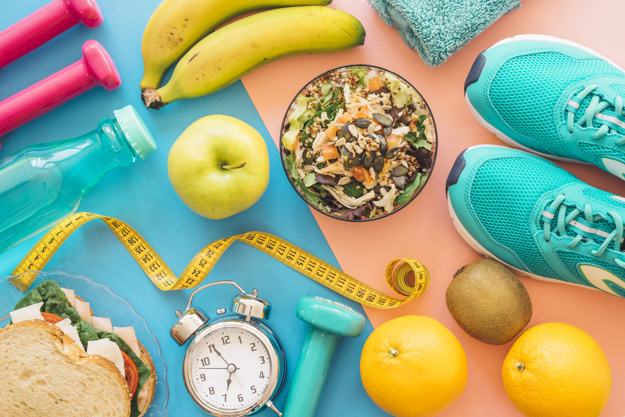Good nutrition is the cornerstone of a healthy and fulfilling life, and at TimesHealthMag Nutrition, we believe in making informed dietary choices. A balanced diet provides essential nutrients that support growth, enhance energy levels, and prevent chronic diseases. This article delves into practical, science-backed nutrition tips to help you make healthier choices.
What Is Nutrition and Why Is It Important?
Nutrition refers to the process by which the body absorbs and utilises essential nutrients from food. A well-balanced diet is vital for:
- Boosting Immunity: Proper nutrition strengthens the immune system, helping the body fight infections and illnesses.
- Enhancing Energy Levels: Nutritious foods provide sustained energy, keeping you active and productive throughout the day.
- Preventing Chronic Diseases: A healthy diet reduces the risk of conditions like heart disease, diabetes, and obesity.
- Supporting Mental Health: Certain nutrients, such as omega-3 fatty acids and B vitamins, play a crucial role in brain function and mood regulation.
Key Nutrition Tips for a Healthy Diet
1. Increase Fibre Intake for Better Digestion
Dietary fibre is essential for digestion, weight management, and heart health. It helps:
- Prevent constipation
- Lower cholesterol levels
- Control blood sugar levels
Foods High in Fibre:
| Food Item | Fibre Content (per 100g) |
|---|---|
| Oats | 10.1g |
| Lentils | 7.9g |
| Chia Seeds | 34.4g |
| Apples (with skin) | 2.4g |
| Broccoli | 2.6g |
💡 Pro Tip: Opt for whole-grain products like brown rice, whole-wheat bread, and quinoa instead of refined grains to boost your fibre intake. Learn more about high-fibre foods (internal link).
2. Prioritise Protein for Muscle and Tissue Repair
Protein is crucial for building and repairing tissues, producing enzymes, and regulating hormones.
Good Sources of Protein:
- Lean meats (chicken, turkey)
- Eggs and dairy products (milk, yogurt, cheese)
- Legumes (beans, lentils, chickpeas)
- Nuts and seeds (almonds, chia seeds, pumpkin seeds)
- Fish and seafood (salmon, tuna, shrimp)
💡 Pro Tip: Incorporate plant-based protein sources like tofu, tempeh, and edamame to diversify your nutrient intake. For more protein-rich ideas, visit Healthline’s Protein Guide (outbound link).
3. Optimise Calcium and Vitamin D for Strong Bones
Calcium strengthens bones and teeth, while Vitamin D enhances calcium absorption.
Best Calcium-Rich Foods:
- Dairy products (milk, cheese, yogurt)
- Leafy greens (spinach, kale, bok choy)
- Tofu and almonds
- Fish with edible bones (sardines, salmon)
Natural Sources of Vitamin D:
- Sunlight exposure (10-30 minutes a day)
- Fatty fish (tuna, mackerel, salmon)
- Fortified dairy and cereals
- Egg yolks
💡 Pro Tip: If you have limited sun exposure or dietary restrictions, consider a Vitamin D supplement after consulting your healthcare provider.
4. Reduce Added Sugars to Maintain a Healthy Weight
Excessive sugar consumption can lead to obesity, diabetes, and heart disease. The American Heart Association recommends:
- Men: No more than 36g (9 teaspoons) of added sugar per day
- Women: No more than 25g (6 teaspoons) per day
Ways to Reduce Sugar Intake:
- Choose natural sweeteners like honey or dates.
- Drink water or herbal teas instead of sugary sodas.
- Read food labels to identify hidden sugars.
- Avoid processed foods with added sugars.
💡 Pro Tip: Swap flavoured yogurt for plain yogurt and add fresh fruits like berries or bananas for natural sweetness.
5. Balance Healthy Fats for Heart Health
Not all fats are harmful. Unsaturated fats promote heart health, while trans fats and excessive saturated fats should be limited.
| Fat Type | Sources (Good/Bad) | Effect on Health |
|---|---|---|
| Healthy Fats (Unsaturated) | Olive oil, avocados, nuts, salmon | Supports heart health ✅ |
| Saturated Fats | Butter, red meat, cheese | Consume in moderation ⚠️ |
| Trans Fats (Unhealthy) | Fried foods, margarine, processed snacks | Increases heart disease risk ❌ |
💡 Pro Tip: Use olive oil or avocado oil for cooking instead of butter to reduce saturated fat intake.
6. Stay Hydrated for Overall Well-being
Water is essential for digestion, temperature regulation, and detoxification. Dehydration can lead to fatigue, headaches, and poor concentration.
Daily Water Intake Recommendations:
- Men: 3.7 liters (15.5 cups)
- Women: 2.7 liters (11.5 cups)
Signs of Dehydration:
- Dry mouth
- Dark yellow urine
- Fatigue and dizziness
💡 Pro Tip: Carry a reusable water bottle and set reminders to sip water throughout the day.
7. Eat a Rainbow of Fruits and Vegetables
Different coloured fruits and vegetables provide unique nutrients and health benefits.
| Colour | Benefits | Examples |
|---|---|---|
| Red | Rich in antioxidants | Tomatoes, strawberries, watermelon |
| Green | Boosts immunity | Spinach, kale, broccoli |
| Yellow/Orange | Supports eye health | Carrots, mangoes, oranges |
| Blue/Purple | Improves brain function | Blueberries, eggplant, grapes |
💡 Pro Tip: Aim for at least 5 servings of fruits and vegetables per day to ensure a diverse nutrient intake.
Common Nutrition Myths Debunked
- Myth 1: Carbs make you fat.
Truth: Whole grains and complex carbs are essential for energy and overall health. - Myth 2: Skipping meals helps in weight loss.
Truth: Skipping meals slows metabolism and often leads to overeating later. - Myth 3: Eating fat makes you fat.
Truth: Healthy fats are necessary for brain function, hormone production, and overall well-being.
Conclusion
Good nutrition is the key to a healthy, active, and disease-free life. By incorporating fibre, protein, healthy fats, and essential vitamins into your diet, you can improve your overall health and well-being. Start with small, consistent changes to your eating habits, and over time, these adjustments will yield long-term benefits.
💡 Final Tip: Plan your meals ahead of time, eat mindfully, and enjoy a variety of nutritious foods to maintain a well-balanced diet. For more tips, explore our TimesHealthMag Nutrition Guide (internal link).


